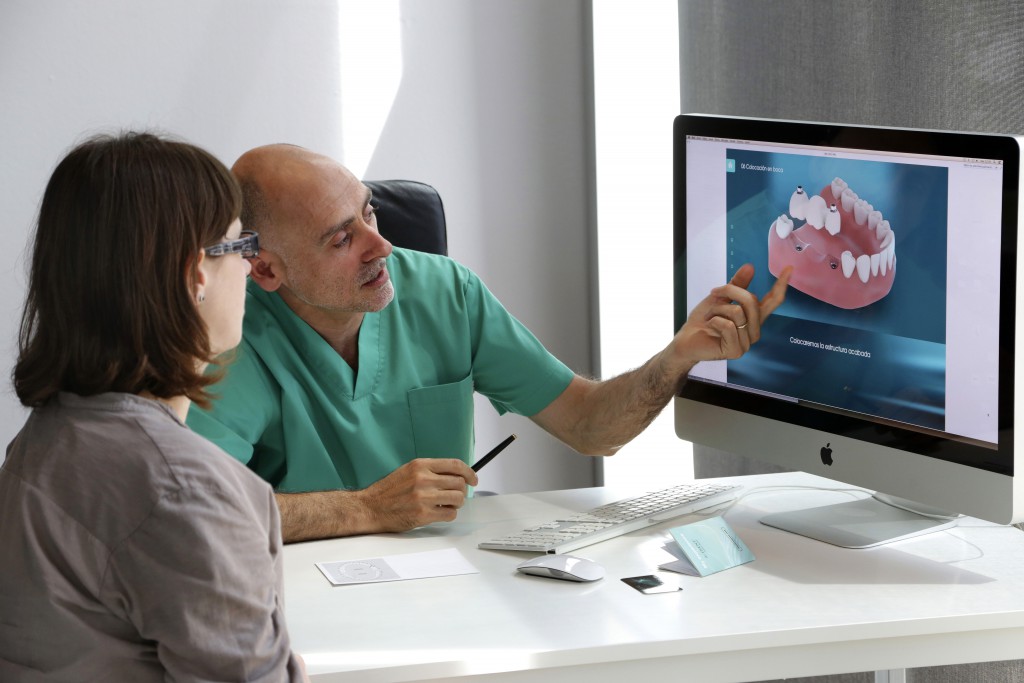

When I ended my studies of stomatology, back in 1989, the management of a private sanitary centre used to be governed by the director’s intuition and, in some cases, by his secretary’s. The accountant was the person who tried to think about the viability of the business, the amount of purshasing as well as the wages in relation with net profit margin. The professional used to calculate this profit by counting 5 or 10 thousands pesetas notes that he had in his wallet – or in his strongbox – tied to “elastic band”. The “bundle” marked power and economical capacity of the professional.
Previously in 1985, dental profession suffered the first, most brutal and massive inspection of the estate never carried out at a collective level. Ernest Lluch, Minister of Health and Consumer Affairs in these years ordered ledges, receipts, financial statement in short. A lot of professionals did not even have a ledge. They were carrying out their management “with their eyes”. And it worked! It is even more, a lot of them earned a very good living. But Ernest Lluch marked a before and an after. Tax advisers appeared. The tax adviser was a reliant man. Almost a confessor. The one who knew more than all the others in accountancy. The adviser was able to spare the life of his customers. He assigned them some fees based on invoice… and based on “money B” that the professionnal wanted to generate.
Currently, the odontologist has seen how his life was made much more complicated compared with the past. It is obligatory to join and register in the Social Security, to hire a Civil Liability Insurance, to account for his income and his profit to the “invisible” partner, the Estate. Moreover, if he is the owner of an odontology centre, it must be legalised, with the hired staff, with all the up to date insurance, with a suitable legal way to his activity, wether he has partners, coworkers, wether he works with insurance companies, etc. What is more, he must offer the best modern service, adapted to the necessities of the current population, in a pleasant and relaxed atmosphere, with all the scheduled procedures (action protocols in a first visit, in an emergency visit, in the sterilisation of the different equipment of odontology…); and with a correct sales and wharehousing policy, which means a good management of “quality”. With all the adapted prices to his necessities (pricing calculations), the adapted wages to legislation, all the staff well trained, well motivated, with team awareness, correctly organized in a hierarchy (chain of command). We have to bear in mind that business has to be adapted to the new scientific tendencies (for example, with the CAD/CAM incorporation in the production of fixed and removable prosthesis), by calculating the amortization ratios of his investments. And make all of that visible. He must be present in the media so that the population knows he exists and so that this one can have what gives sense to life: client/patient.

These are a few examples that show how the profession has changed. Unfortunately, the social changes, including professional changes, are generally going behind the classical academism. The University is usually hopeless and slow when they adapt its teaching to the social necessities that are appearing at every moment. They normally are the professionals that first demand, secondly acquire and thirdly apply the new necessary knowledge to practise a profession with dignity.
There are no doubt that the Management of the Dental Clinic, the management of the profesional himself, is a new discipline that is barely part of the postgraduate traning. The odontology is a great profession. As such, it supplies services: from cleaning service of centres, through tax advisers, control centers of radiology used in the enquiries disposal of waste companies, computer services, marketing experts, centres of dental prosthesis, purshasing groups, quality advice servicies, files, data protection and labor risks experts… The profesional must know what and how much he needs to not succumb too mucho or too few. If we get out of this knowledge, we can fall into hands of not much profesional groups that sell us 100 when we need 10 or who do not provide us what we really need.
The great book that must regulate any dental business is the “Business Plan”. This document should rise with the business and no stop being developped with it. But that is another story.